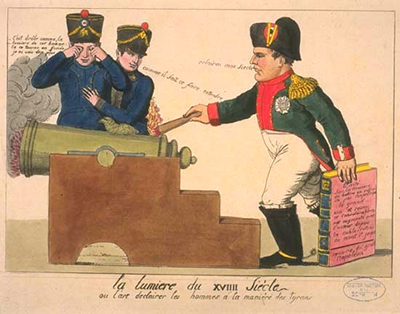Well, this is my first journal of the year! Today's social science's lesson has been really interesting for me, and we have done many different things.
First of all, Paqui has told me that today it was my turn to do the journal, and tomorrow is Fran's turn.
After that, we have revised the Directory and the Napoleonic Era. We have also corrected the homework. We had to complete the scheme about the Napoleonic Era. The things that we had to complete were the following:
- The territories included in the French Empire, which were France, Savoy, part of Germany, present Croatia and a small territory in Italy.
- The allied territories of the French Empire, which were Denmark, Norway, Austria and Prussia.
We also had to finish the scheme talking about the Continental Blockade, which meant that buying or selling products to Great Britain was forbidden. Napoleon invaded the countries that didn´t follow it: Portugal (after the Treaty of Fontainebleau, fact that led to the Peninsular war in Spain) and Russia.
These invasions were the beginning of the end of the Napoleonic Empire. The Russian Campaign was a disaster. The troops had to retire due to bad conditions. In 1813 a coalition of countries defeated Napoleon in the Battle of Leipzig. He was confined in Elba. In 1815 he came back to France, but he was defeated in the Battle of Waterloo and exiled to Saint Helena, where he died.

Source: http://www.roebuckclasses.com/102/resources/napoleon/napoleon1.htm
This image shows Napoleon's life very well. Paqui has included it on the presentation, but I've liked it a lot and I wanted to include it on my journal.
After correcting all this, Paqui has explained the last point of the french Revolution: The Legacy of the French Revolution.
This legacy had two main ideas:
- The French armies spread the ideas of the French Revolution throughout Europe. Although the Napoleonic army was defeated, these ideas remained.
- All the countries which were invaded by France developed nationalist feelings against the invaders.
After that Paqui has given us some homework: to complete a scheme about the Congress of Vienna. We have started this in class, and while we where writing, Paqui has showed us some videos from a Social Siences teacher. Her videos were songs that summarized different units about history. We have watched two videos. The first one was about Napoleon and the second one was about the French Revolution. We have had a good time watching this! :)
Here you have the videos!!!























